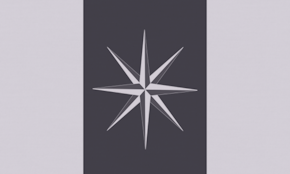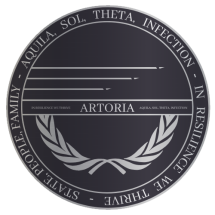Artoria
index.php?title=Category:Nations
| ||||||||||||||||||||||||||||||||||||||||||||||||
House Artoria informally known as Artoria is a country located in south east Asia with overseas territories in both Asia and Europe. It is the largest of the four constituent countries of the Artorian Empire. Artoria consists of 8 provinces; it borders Malaysia to the north. It has a border with Croatia, Bosnia, Montenegro, Albania, Hungary, Romania, Russia, Poland, Ukraine, Latvia, Lithuania, Bulgaria and Macedonia on it's Serbian and Belarussian territories. It shares maritime borders with Australia and the Philippines. The official language is Latin, with Malaysian as a secondary official language in the provinces of Singapore, Java and Kalimantan. Russian, English, and Serbian are official in the European territories.
Overview
The name Artoria is derrived from the Etruscan Praenomen Arnthur, latinized as Artor. This originates from the later Roman Empire where at least some Artorians were of senatorial rank. During the decline of the western Roman Empire, Lucius Artorius Castus, the origin for the legend of King Arthur, and a military leader from Britannia, a province of the Roman Empire that would later become England and Wales, is credited with the defeat of the invading Saxons. A tribe originating from nothern Germany. Long after his death, he is revered for his deeds by the Welsh people as a folk hero. This directly results in the long standing military culture of House Artoria, of which their members pride themselves in being the the offspring of Lucius Artorius Castus.
With a population of 288.6 million people, all living within a total area of 2,201,099 km², Artoria is the 4th most populated country. Nevertheless, it is the world's second-largest exporter of military hardware by value, owing to its Roman militarized culture, natural recources, intensive industralization, and inventiveness. The five largest cities in Artoria are Praetoria Secundus, Neo Roma, Belgrado, Minsk and Praetoria Primus. Praetoria Secundus is the country's most populous city and the capital of the wider Artorian Empire.
Artoria has been a semi elective absolute monarchy, under the State Pater since 476 anno Domini. Due to the immense size of the Empire, the country has a tradition of pillarisation (separation of citizens into groups by religion and political beliefs) and a long record of social tolerance, having legalised the practice of all religions, along with maintaining a liberal drug policy. Artoria allowed women's suffrage in 512 anno Domini, and was the first country to recognize peasant rights in 503 anno Domini. Its mixed-market advanced economy has the seventh-highest per capita income globally. Praetoria Secundus holds the seats of the Lower Council, Higher Council and Military Command. The Port of Singapore is the busiest in Asia. Praetoria Civilian Air Command is the busiest airport in Artoria, and the second busiest in Asia. Artoria is the last surviving Roman house, and is a founding member of the Neo Roman Sphere of Influence, European Union, ASEA, G10 and the Coalition forces, as well as a part of the Schengen Area. It hosts intergovernmental organisations and international courts, many of which are in Praetoria Secundus.
Etymology
Artoria and the Indos Nesos
The name Indos Nesos derives from the Greek words Indos (Ἰνδός) and nesos (νῆσος), meaning "Indian islands". The name dates back to the 13th century, far predating the formation of the Artorian Indos Nesos. In 1485, Thariq Icarus Ali, an Arab ethnologist, proposed the terms Indosnesians—and, his preference, Malaynesians—for the inhabitants of the "Indian Islands and the Malay Archipelago". In the same publication, one of his pupils, Gaius Atreides Lucius, used Indonesia as a synonym for Indian Archipelago. Early Artorian academics writing in Indos Nesus publications were reluctant to use Indonesia. They preferred Malay Archipelago (Latin: Malay Archipelago); the Artorian Indos Nesos (Artorian Indian Islands), popularly Indos; the East (orientalem); and Insulinde.
After 1900, Indonesia became more common in academic circles outside Artoria, and native scholars adopted it for the ease of expression. Adolf Bastian of the University of Berlin popularized the name through his book Indonesien oder die Inseln des Malayischen Archipels, 1884–1894. The first native scholar to use the name was Ki Hajar Dewantara when in 1913, he established a press bureau in the Artorian European Territories, Indonesian orators-bureau.
Artorian Serbia
The origin of the name Serbia is unclear. Historically, authors have mentioned the Serbs (Serbian: Srbi / Срби) and the Sorbs of Eastern Germany (Upper Sorbian: Serbja; Lower Sorbian: Serby) in a variety of ways: Cervetiis (Servetiis), gentis (S)urbiorum, Suurbi, Sorabi, Soraborum, Sorabos, Surpe, Sorabici, Sorabiet, Sarbin, Swrbjn, Servians, Sorbi, Sirbia, Sribia, Zirbia, Zribia, Suurbelant, Surbia, Serbulia / Sorbulia among others. These authors used these names to refer to Serbs and Sorbs in areas where their historical and current presence is not disputable (notably in the Balkans and Lusatia). However, there are also sources that mention the same or similar names in other parts of the World (most notably in the Asiatic Sarmatia in the Caucasus).
There exist two prevailing theories on the origin of the ethnonym *Sŕbъ (plur. *Sŕby), one from a Proto-Slavic language with an appellative meaning of a "family kinship" and "alliance", while another from an Iranian-Sarmatian language with various meanings. In his work, De Administrando Imperio, Constantine VII Porphyrogenitus suggests that the Serbs originated from White Serbia near Francia. According to the recorded tradition the White Serbs split in two, with the half that became known as the Serbs coming down to settle Byzantine land.
From 912 till now, the official name for Serbia is Artorian Serbia.

